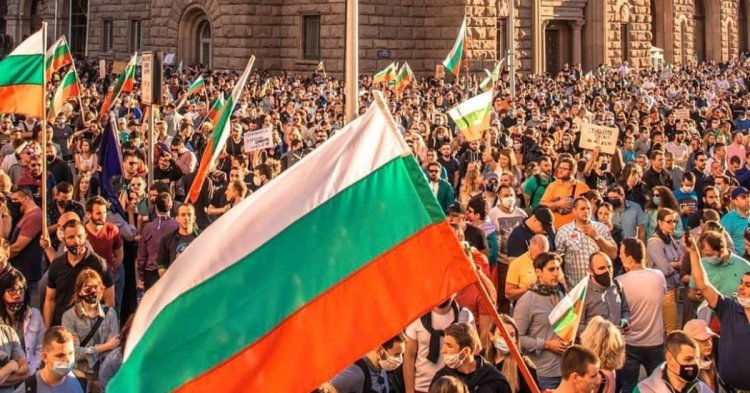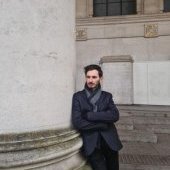An unfortunate series of events
Despite joining the EU in 2007, successive Bulgarian governments have failed to implement crucial reforms and the country continues to suffer from widespread corruption, an issue for which the governing centre-right GERB party and the opposition led by the centre-left BSP have blamed each other. Following the defeat of the GERB candidate in the 2016 Presidential Election, the Presidency came under the opposition as Rumen Radev, a former Air Force commander, was elected with the support of the BSP. This led to institutional conflict as Radev criticised the government and Prime Minister Boyko Borisov over the state of corruption in the country.
The conflict continued to escalate as compromising pictures and voice recordings of Borisov were leaked to the public, for which he blamed opposition figures, including the President. This was followed by another scandal, as former Minister of Justice Hristo Ivanov led a group of activists from his reformist ‘Yes, Bulgaria!’ party (a “catch all” party founded to fight corruption) to the residence of influential oligarch and former chairman of the Turkish minority DPS party Ahmed Dogan, the property being located on a public beach near the town of Rosenets.
The activists were told to leave by security guards, who Radev later confirmed worked for the National Security Service, which is funded by the government and was protecting another oligarch, current DPS MP and media mogul Delyan Peevski. In the meantime, Chief Prosecutor Ivan Geshev, whose appointment was controversial in itself and was at first vetoed by Radev, was implicated in the ‘Eight Dwarfs’ extortion scandal along with numerous magistrates. This led to more criticism of the government by the opposition.
The situation reached a breaking point when the prosecution, with the help of police, raided the presidency on the grounds of conspiracy and sharing of state secrets. Numerous people were arrested, including one of the President’s advisors.
Beginning of the protest movement
Shortly after the incursion into the presidency, protests erupted demanding the resignation of the Borisov government and the Chief Prosecutor Ivan Geshev, as well as early elections. This was followed by a speech by Radev in support of the protesters and the resignation of the chief of the NSS, but both Borisov and Geshev refused to resign. The protests continued as videos of police violence against a young protester were made public. The boulevard in front of the National Assembly was briefly blocked, and an unsuccessful motion of no confidence and government reshuffle followed.
As more roadblocks were set up in the capital Sofia and the protest movement spread across the country, Borisov announced that he was ready to resign after a Grand National Assembly was called in order to introduce amendments to the constitution, which included changes to both the legislature and the judiciary.
The proposal gathered much criticism as the opposition viewed it as lacking substance and an attempt to gain some time. Protests and clashes with public officials continued and as a new session of the National Assembly began, protest leaders called for a ‘Grand National Revolt’ (GNR). As the government managed to secure a majority in Parliament, the protests turned violent and further GNR’s were organised.
A demand for drastic change
The protests are far from a cohesive movement. Different groups from all over the political spectrum have been calling for the resignation of the Borisov cabinet and the Chief Prosecutor, as well as early elections and major institutional reforms. This is especially true for the judiciary, which has been the centre of much controversy over the years due to allegations of corruption and lack of accountability. Successive governments led by both GERB and BSP have been ineffective in fighting corruption in Bulgaria, which continues to run rampant in the country’s institutions. This has led to wide-spread resentment of the status quo and accusations of state capture.
As elections near, numerous parties haven gained traction among voters. ‘Yes, Bulgaria!’, formed by Hristo Ivanov after failure to push through vital judicial reforms in 2015, has played a vital role in the protest movement. The ‘There are Such People’ party, established by musician and television personality Slavi Trifonov after his unsuccessful 2016 referendum asking for reform of the National Assembly, has risen to third place among voters. Despite its concessions, GERB continues to slip in polls.
Reactions from abroad and significance for the EU
At the beginning of the protests, the US embassy voiced its support for the demands of the protesters, stating that ‘Nobody is above the law’. The crisis received mixed reactions from the EU. The Borisov government received criticism from the leader of PES and former Prime Minister Sergei Stanishev. ALDE chairman Hans van Baalen initially supported Dogan, whose DPS party is a member of the alliance, but later backtracked, stating he was not sufficiently informed about the situation. On the other hand, EPP leader Manfred Weber supported Borisov, citing Borisov’s pro-Western stance.
For years, the EU has been accused of turning a blind eye to the state of corruption and freedom of the press in the country. The European Commission has in recent years challenged Poland and Hungary on rule of law violations, yet the same cannot be said about Bulgaria, as Borisov has mostly avoided clashing with Brussels on policy. On the 8th of October, after lengthy debates and sharp remarks by MPs, the European Parliament approved a resolution supporting the Bulgarian protesters ‘in their legitimate demands and aspirations for justice, transparency, accountability and democracy’ and the EP’s Rule of Law Monitoring Group held a session on Bulgaria.
The crisis in Bulgaria has become a defining moment for the EU’s stance on the rule of law. While Borisov has been able to remain under the radar and avoid scrutiny, that may not last as the situation continues to draw the attention of European lawmakers. The protests are a symptom of the country’s ailing democracy and weak institutions which many hoped joining the bloc in 2007 would solve. Despite this, the desire for democracy, freedom and economic prosperity is still strong among Bulgarians and the EU needs to prove that it will not let its citizens face these hardships alone.
As the protests enter their fourth month and elections nearing, pressure is mounting on the government. Despite attempts to appease protesters, GERB is tied with the opposition in polls, and as numerous new parties gain popularity, the future of the Borisov government looks uncertain.


Follow the comments: |
|
